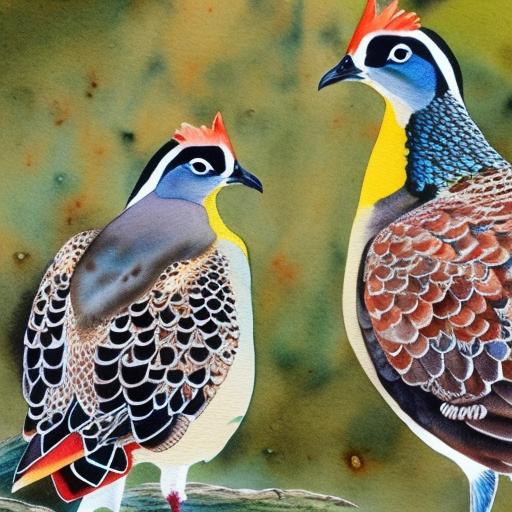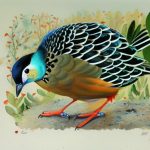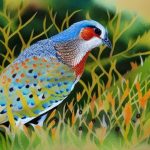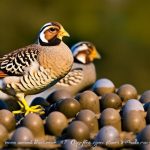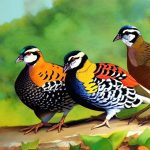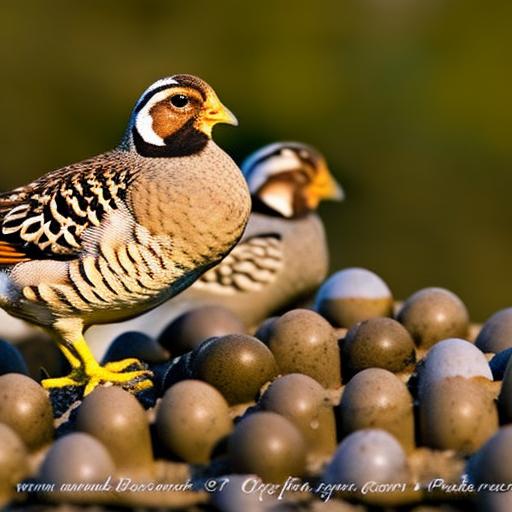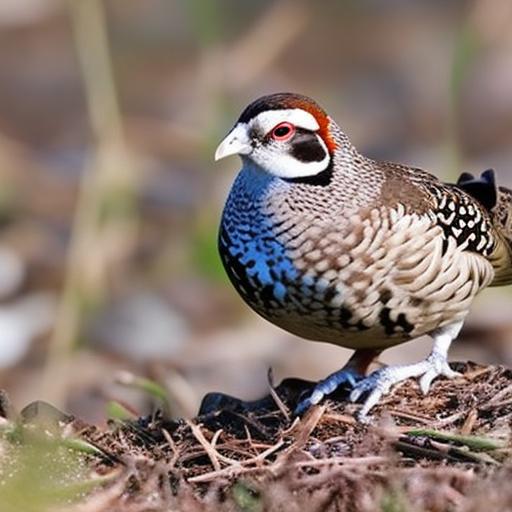King quails, also known as button quails, are small, ground-dwelling birds that are native to Australia and surrounding regions. They are popular among aviculturists for their colorful plumage and interesting behaviors. Breeding king quails can be a rewarding experience for bird enthusiasts, as it allows them to observe the natural behaviors of these fascinating birds and contribute to the conservation of their species. In this article, we will explore the various aspects of king quail breeding, including selecting breeding stock, creating a suitable breeding environment, understanding breeding behavior and mating, managing incubation and hatching, caring for chicks, and addressing health and genetic considerations.
Key Takeaways
- King quail breeding is a rewarding hobby that requires careful selection of breeding stock and proper housing and care for the birds.
- When selecting breeding stock, it is important to choose healthy, unrelated birds with desirable traits such as good coloration and size.
- The breeding environment and housing should provide enough space for the birds to move around and nest, as well as access to fresh water and a balanced diet.
- Breeding behavior and mating in king quails involve courtship displays and the male’s role in building a nest and caring for the eggs.
- Incubation and hatching of king quail eggs require a stable temperature and humidity, and the chicks need to be kept warm and fed a high-protein diet after hatching.
Selecting Breeding Stock
When it comes to breeding king quails, selecting the right breeding stock is crucial for producing healthy and genetically diverse offspring. It is important to choose birds that are in good physical condition, with no signs of illness or deformities. Look for birds that are active, alert, and have bright, glossy plumage. Additionally, it is advisable to select breeding pairs that are not closely related to avoid inbreeding and genetic abnormalities. When selecting breeding stock, consider the birds’ lineage and genetic history to ensure that they are not closely related. By carefully choosing breeding stock, you can increase the chances of producing strong and healthy offspring with vibrant plumage and robust genetics.
In addition to physical health and genetic diversity, it is also important to consider the temperament and behavior of the birds when selecting breeding stock. Look for birds that are compatible with each other and exhibit natural mating behaviors. Observing the birds’ interactions and social dynamics can help you identify potential breeding pairs that are likely to form strong bonds and successfully raise their offspring. By selecting breeding stock based on physical health, genetic diversity, and behavioral compatibility, you can lay the foundation for a successful king quail breeding program.
Breeding Environment and Housing
Creating a suitable breeding environment is essential for the health and well-being of king quails during the breeding process. The breeding environment should mimic the birds’ natural habitat as closely as possible, providing them with ample space to move around, forage for food, and engage in natural behaviors. A spacious aviary with plenty of vegetation, hiding spots, and substrate for dust bathing is ideal for breeding king quails. The aviary should also be equipped with nesting boxes or shelters where the birds can lay their eggs and raise their chicks in privacy.
In addition to providing a naturalistic environment, it is important to ensure that the breeding aviary is secure and predator-proof to protect the birds and their offspring from potential threats. Use sturdy wire mesh to enclose the aviary and consider adding a roof or netting to prevent predators from accessing the birds from above. Regularly inspect the aviary for any signs of wear or damage and make necessary repairs to maintain a safe and secure breeding environment for your king quails.
Furthermore, maintaining proper hygiene in the breeding environment is essential for preventing the spread of diseases and ensuring the overall health of the birds. Clean the aviary regularly, removing soiled bedding, food debris, and any potential sources of contamination. Providing fresh water and a balanced diet will also contribute to the overall well-being of the breeding birds. By creating a naturalistic, secure, and hygienic breeding environment, you can promote successful breeding and raise healthy king quail chicks.
Breeding Behavior and Mating
Understanding king quail breeding behavior and mating rituals is essential for facilitating successful reproduction in captivity. Male king quails are known for their elaborate courtship displays, which involve puffing up their feathers, bobbing their heads, and emitting distinctive calls to attract females. Observing these courtship displays can help you identify potential breeding pairs and gauge the compatibility of male and female birds.
Once a pair has formed a bond, mating behavior typically follows, with the male pursuing the female and engaging in copulation. It is important to provide ample privacy and nesting space for the birds during this time to ensure that they can engage in natural mating behaviors without disturbance. Additionally, monitoring the birds’ behavior closely can help you identify when mating has occurred, allowing you to anticipate egg-laying and begin preparations for incubation.
In some cases, male king quails may display aggressive behavior towards females or other males during mating season. It is important to monitor the birds closely and intervene if necessary to prevent injuries or stress. Providing ample space and hiding spots within the aviary can help reduce aggression and provide the birds with opportunities to retreat from potential conflicts. By understanding king quail breeding behavior and mating rituals, you can create an environment that supports natural reproductive processes and facilitates successful breeding outcomes.
Incubation and Hatching
Once mating has occurred, female king quails will begin laying eggs in their chosen nesting site within the aviary. It is important to provide suitable nesting material such as soft bedding or grass clippings to encourage the female to lay her eggs in a secure and comfortable location. After laying her eggs, the female will begin incubating them, keeping them warm and turning them regularly to ensure proper development.
In some cases, it may be necessary to remove the eggs from the aviary and place them in an artificial incubator to increase the chances of successful hatching. This may be necessary if the female is inexperienced or if there are concerns about egg viability due to environmental factors or potential disturbances in the aviary. When using an incubator, it is important to closely monitor temperature and humidity levels to create an optimal hatching environment for the eggs.
Once the eggs have reached full term, they will begin to hatch, with chicks emerging from their shells over a period of several days. It is important to provide a warm and secure brooding area for the newly hatched chicks, as they will be vulnerable and dependent on their parents for warmth and nourishment. Providing a balanced diet of high-quality chick feed and ensuring access to clean water will support the healthy growth and development of the chicks during this critical stage. By managing incubation and hatching carefully and providing appropriate care for the newly hatched chicks, you can increase the chances of successful breeding outcomes with king quails.
Caring for Chicks
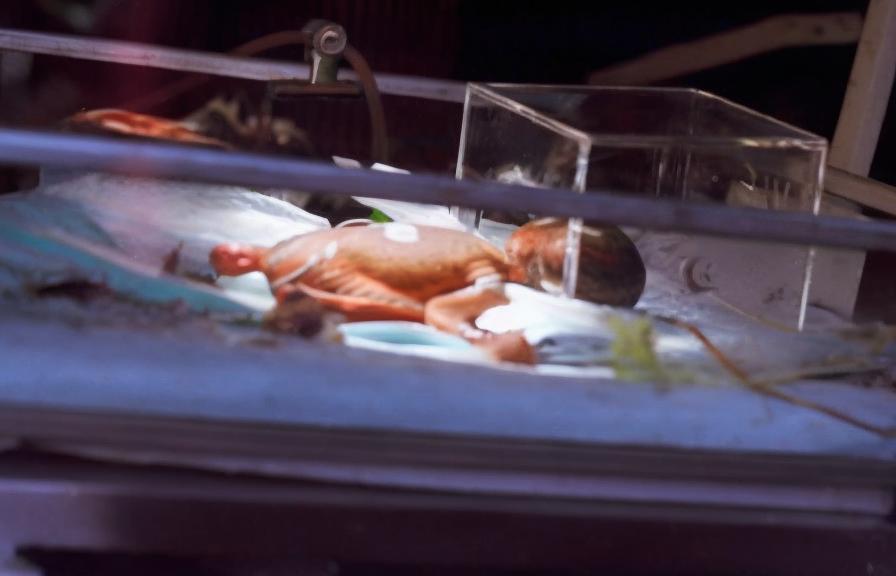
Caring for king quail chicks requires attentive observation and proactive management to ensure their health and well-being during the early stages of development. Newly hatched chicks are fragile and require a warm and secure brooding area within the aviary to maintain their body temperature and promote healthy growth. Providing a heat source such as a heat lamp or brooder will help regulate temperature within the brooding area, creating a comfortable environment for the chicks.
In addition to maintaining proper temperature, it is important to provide a balanced diet for the chicks to support their growth and development. High-quality chick feed formulated specifically for game birds or small poultry species is ideal for providing essential nutrients and promoting healthy feather development. Additionally, offering small amounts of finely chopped greens or insects can supplement the chicks’ diet with additional vitamins and minerals.
As the chicks grow, they will become increasingly independent and begin exploring their surroundings within the aviary. Providing ample space for them to move around, along with opportunities for natural behaviors such as dust bathing and foraging, will support their physical development and socialization with other birds. Monitoring the chicks closely for signs of illness or developmental issues will allow you to intervene promptly if necessary, ensuring that they receive appropriate care and support during this critical stage of growth.
Health and Genetic Considerations
Maintaining the health and genetic diversity of king quails is essential for sustaining successful breeding programs over time. Regular health checks and monitoring for signs of illness or disease within the breeding population will help prevent potential outbreaks and ensure that the birds remain in optimal condition for reproduction. Additionally, providing a balanced diet, access to clean water, and opportunities for exercise will support overall health and well-being among breeding stock.
Genetic considerations are also important when managing king quail breeding programs. Avoiding inbreeding by selecting unrelated breeding pairs will help maintain genetic diversity within captive populations and reduce the risk of genetic abnormalities or health issues among offspring. Keeping detailed records of breeding pairs, hatch dates, and genetic lineage will help you track genetic diversity within your breeding program over time.
In conclusion, breeding king quails requires careful consideration of various factors including selecting breeding stock, creating a suitable breeding environment, understanding breeding behavior and mating rituals, managing incubation and hatching, caring for chicks, and addressing health and genetic considerations. By taking a proactive approach to managing these aspects of king quail breeding, aviculturists can contribute to the conservation of these fascinating birds while enjoying the rewards of observing natural reproductive behaviors in captivity.
If you’re interested in learning more about king quail breeding, you might also want to check out this informative article on “The Chicken Coop Country Diner” at PoultryWizard.com. It’s a great resource for poultry enthusiasts and provides valuable insights into creating a comfortable and productive environment for your quails and other poultry.
FAQs
What is king quail breeding?
King quail breeding refers to the process of mating and raising king quails in captivity for the purpose of producing offspring.
What are the basic requirements for breeding king quails?
Basic requirements for breeding king quails include providing a suitable breeding environment with proper nesting materials, a balanced diet, and ensuring the birds are healthy and free from diseases.
At what age do king quails reach sexual maturity?
King quails typically reach sexual maturity at around 8-10 weeks of age.
How do you identify the gender of king quails?
Male king quails can be identified by their brighter and more distinct chestnut-colored breast feathers, while females have a more subdued and mottled appearance.
What is the breeding season for king quails?
King quails do not have a specific breeding season and can breed throughout the year, especially in captivity where environmental conditions are controlled.
How many eggs do king quails lay and how long is the incubation period?
King quails typically lay 5-13 eggs in a clutch, and the incubation period is around 17-18 days.
What is the recommended temperature and humidity for king quail eggs during incubation?
The recommended temperature for incubating king quail eggs is around 99-100°F (37-38°C), with a humidity level of 40-50%.
What should be the diet of breeding king quails?
The diet of breeding king quails should include a variety of seeds, grains, and insects to ensure they receive the necessary nutrients for successful breeding and egg production.
Meet Walter, the feathered-friend fanatic of Florida! Nestled in the sunshine state, Walter struts through life with his feathered companions, clucking his way to happiness. With a coop that’s fancier than a five-star hotel, he’s the Don Juan of the chicken world. When he’s not teaching his hens to do the cha-cha, you’ll find him in a heated debate with his prized rooster, Sir Clucks-a-Lot. Walter’s poultry passion is no yolk; he’s the sunny-side-up guy you never knew you needed in your flock of friends!

